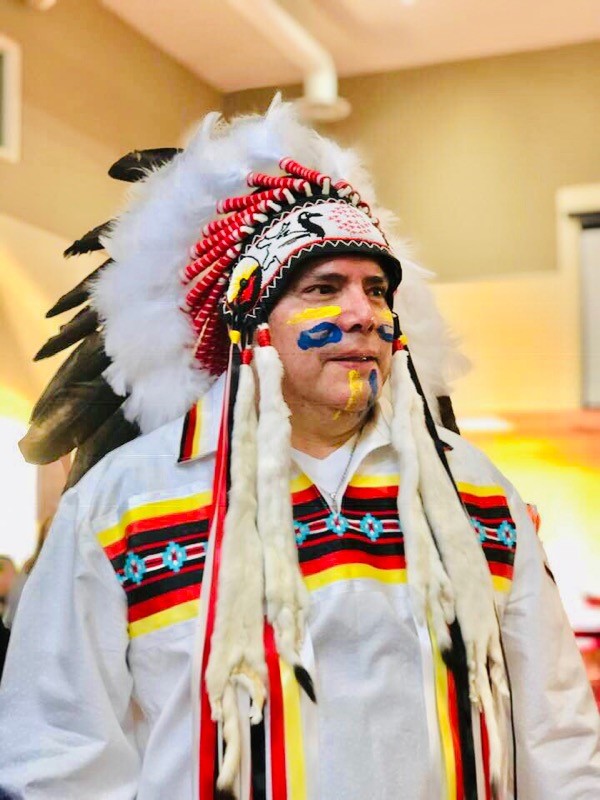Pope Francis continues his cross-country trip as he apologizes to Canada’s Indigenous people for the church’s role in the residential school system.

Some Canadian Catholics say they’re hoping the historic apology by their faith’s leader will be enough to bring some disillusioned believers back into the fold.
Janelle Lafantaisie, communications director at the Archdiocese of Winnipeg, said the discovery last year of 215 unmarked graves at the site of a former British Columbia residential school — and the subsequent revelations across the country — left many Catholics questioning their faith.
“I do know some people who were so destroyed by the Kamloops discovery last year and everything that came forth from it,” Lafantaisie told 680 CJOB’s Connecting Winnipeg.
“How do you spiritually come back from that? How do you deal with that?
“I wrestled with it myself — I just couldn’t understand how. I never stopped going to church, I never questioned my Catholic faith, but I just didn’t understand how this could happen, and I wrestled with that for a long time.”
Lafantaisie, who witnessed the Pope’s apology Monday in Alberta, said while she can’t speak for all Catholics, she hopes the pontiff’s words, which she perceived as genuine, mark a first step to getting them back in church.

Get daily National news
“For me, it was just beautiful to witness — it was something that was genuine. (He was) very honest and, I thought, thorough in his words.”
While many Canadians have shared Lafantaisie’s sentiments in recent days, others are calling for the Pope to go into more detail about the role the church played in residential schools, and to specifically mention the widely reported sexual abuse of children in the schools.
In a statement Tuesday, Grand Chief Garrison Settee of Manitoba Keewatinowi Okimakanak said the experience was overall a positive one for survivors, but that this is only the first step towards accomplishing goals of reconciliation.
“It was awesome to hear those words for all the people who needed to hear it,” Settee said. “I’m happy to see the survivors receive this apology. I believe it was a sincere apology.
“Some people have expressed their disappointment that they did not hear an acknowledgement of the genocide of Indigenous peoples in relation to the role of the Catholic church in running residential schools.”
Settee said he hopes the moment marks the beginning of a better partnership between the church and Indigenous Canadians — one that includes more openness on the church’s part going forward.
“I look forward to seeing the return of all artifacts and documents to the first peoples. We need any records stored in the Vatican as these contain answers that will reveal further truths,” he said.
“Acknowledging the truth and saying sorry is one of the first steps to assist us in collectively moving forward on the path to reconciliation.”

The Indian Residential Schools Crisis Line (1-866-925-4419) is available 24 hours a day for anyone experiencing pain or distress as a result of their residential school experience.













Comments